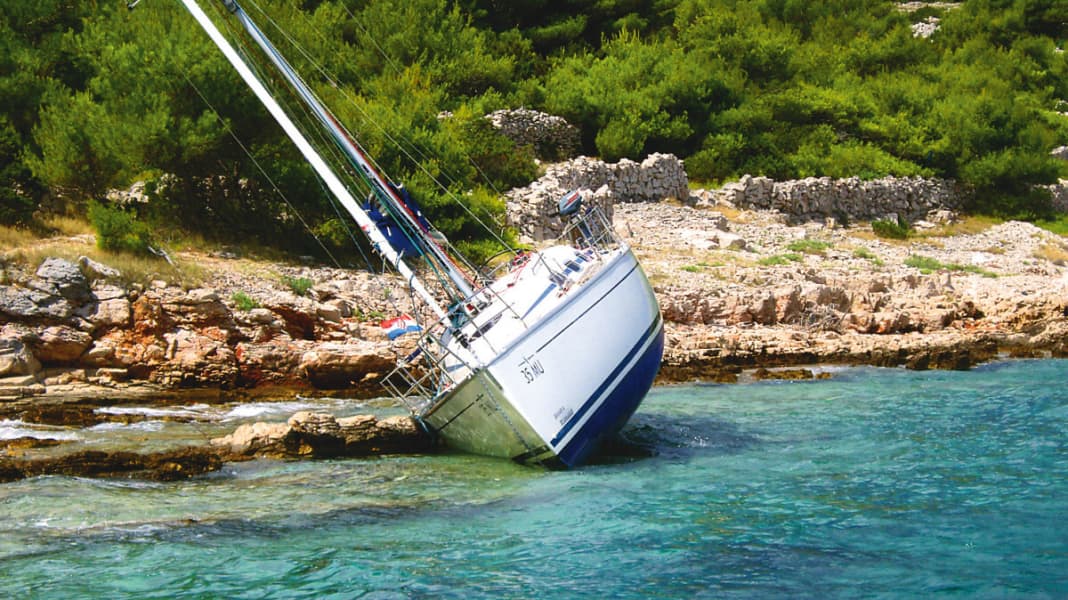Expert interview: Rights and obligations of injured parties
Pascal Schürmann
· 01.09.2021


How quickly do I have to inform the insurance company after a claim?
The terms and conditions usually contain the wording "immediately" - meaning without culpable delay. Nowadays, many insurers can be contacted around the clock via service telephone numbers. So don't be afraid to pick up your radio or mobile phone in the middle of the night or at the weekend for a supposedly trivial matter, or at least send an e-mail as soon as possible. However, the insurance can wait if, for example, you suffer a serious accident and have your hands full getting the crew and ship safely to the next harbour. The same applies if you are seriously injured as a result of an accident and need to be hospitalised. In this case, the insurance company cannot demand that you pick up the phone despite your serious injury.
Who do I need to call: my broker or the insurance company?
As a general rule, the insurance company is your contractual partner, not the broker or agent who sold you the policy. This means that you must inform them directly in the event of a claim. If you fail to do so, you may later be refused compensation on the grounds of a breach of obligation. Even if you called your broker or agent in good faith. If they did not have authorisation to give you instructions on behalf of the insurance company after a loss event, you may end up the loser.
Are there any exceptions to this?
They do exist. In practice, large insurance brokers and intermediaries have concluded corresponding agreements with the companies whose policies they sell. This means that they are authorised to handle claims themselves. However, you as the customer must be informed of this in writing. A look at the small print provides clarity. If nothing is stated there, do not under any circumstances believe the broker's verbal assurances. Instead, ask the insurance company directly and, if in doubt, demand a written declaration that the broker is actually acting on behalf of the insurance company.

Do I always have to follow the insurance company's instructions?
Yes, otherwise you are jeopardising your insurance cover. In individual cases, this may mean that you have to cancel your holiday cruise, call at an unscheduled port or make your ship accessible to a damage surveyor at certain times. You are only entitled to disobey instructions if life and limb are at risk. For example, nobody could ask you to remain on your leaking ship until the insurance company has organised a tugboat if this would put yourself or your crew in danger. However, you must then be prepared for the insurance company to later want to know exactly what this danger was.
Do I have to accept the expert sent by the insurance company?
Yes. Unfortunately, you have no say in the selection.
What can I do if the amount of damage determined by the expert seems too low?
You have two options: You can commission an expert opinion yourself. However, you would have to pay for this yourself. Alternatively, you can have a reputable repair company provide you with a cost estimate. If this differs significantly from the insurance appraisal, confront your company or your broker. If the other party is stubborn, you can go to the ombudsman. This is a publicly appointed arbitrator who is supposed to mediate between the two parties. You can find out who is responsible in your insurance documents. If this is also unsuccessful, you still have to go to a lawyer.
Can I choose where I want to have the repairs carried out?
In principle, yes, as long as you don't overdo it. There is no requirement to order repairs from the best and most expensive local company. The middle price segment in a region is decisive. If you are unsure, get quotes from different companies and choose one in the middle. Then the insurance company cannot accuse you of luxury repairs.
Am I entitled to have my ship repaired at the original manufacturer's shipyard or its authorised dealer?
No, this generally makes little sense, as many yacht manufacturers are not geared towards repairs. They would also commission service companies to do this. In addition, you would not be able to ask the insurance company to pay for the potentially extremely expensive transport of your damaged boat to the manufacturer's shipyard.
How long do I have to wait before I can have the ship repaired?
You must allow your insurance company a few weeks, or even two to three months, to process your claim. Experience also shows that companies do not deliberately delay the processing of an insurance claim. Particularly in the case of serious accidents, you can therefore almost always assume that the current season is over for you, however bitter this may be in individual cases. After all, following the assessment, cost estimates have to be obtained before the actual repair can even take place.
Can I repair a claim myself and have the sum insured paid out?
Yes. In this case, however, you may only be reimbursed the net amount. You are only entitled to payment of the gross amount if VAT is actually paid as part of the damage repair. This can also happen up to three years afterwards. If, for example, you realise one year after the sum insured has been paid out that you would rather have the repairs carried out professionally by a company, you can have the VAT reimbursed by the insurance company retrospectively against a receipt.
Does the insurance also cover costs for hotels, flight rebookings, medical care, etc. after an accident?
There is no compensation for self-inflicted damage. Only the ship is insured. You must bear all consequential costs that are not directly attributable to the ship yourself - unless you have also taken out a kind of cover letter policy, which some insurers now offer. Only in exceptional cases will your own hull insurer cover hotel and travel costs if the expenses were incurred by the owner in the interest of minimising the damage.
What if I myself am the injured party?
In the case of damage caused by a third party, the situation is different. In this case, the other party is obliged to pay further compensation. This certainly includes additional accommodation and travel costs for the crew if a trip has to be cancelled. You may even be entitled to compensation for pain and suffering if you have been injured as a result of an accident.
Can I also demand a replacement vessel from the other party or their insurance company for the time during which my own yacht is being repaired? Or at least compensation for loss of sailing pleasure?
Boats are still regarded as luxury goods by the vast majority of courts. This is in stark contrast to a commodity such as a car, which you depend on because you drive it to work every day. As a rule, owners cannot therefore hope to receive compensation for use as a result of an accident.
Recorded by Pascal Schürmann; published in YACHT 4/2010

